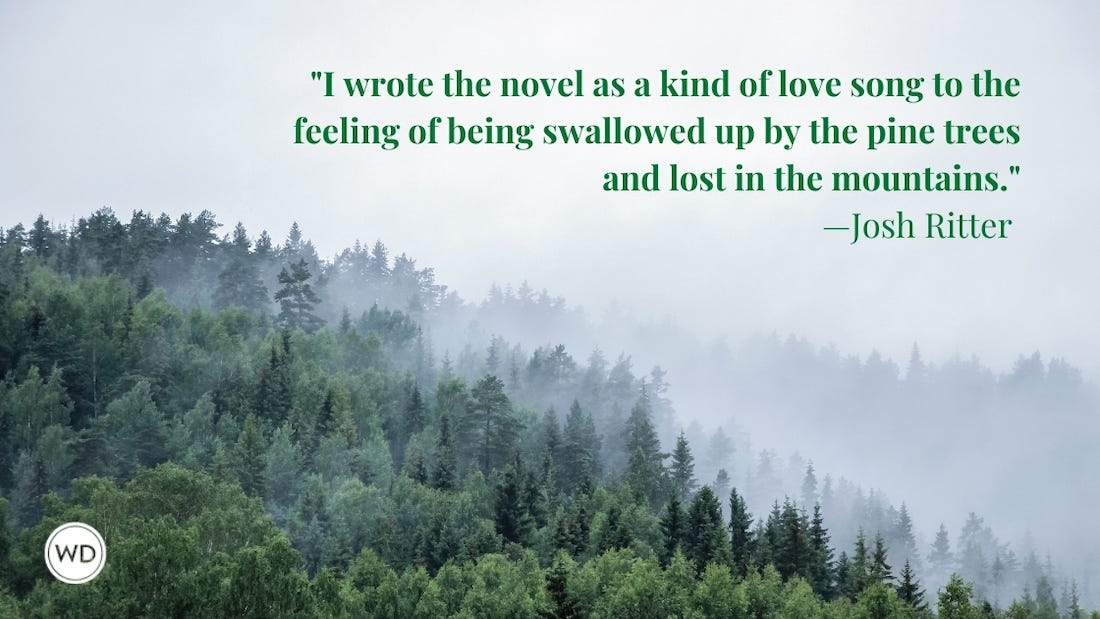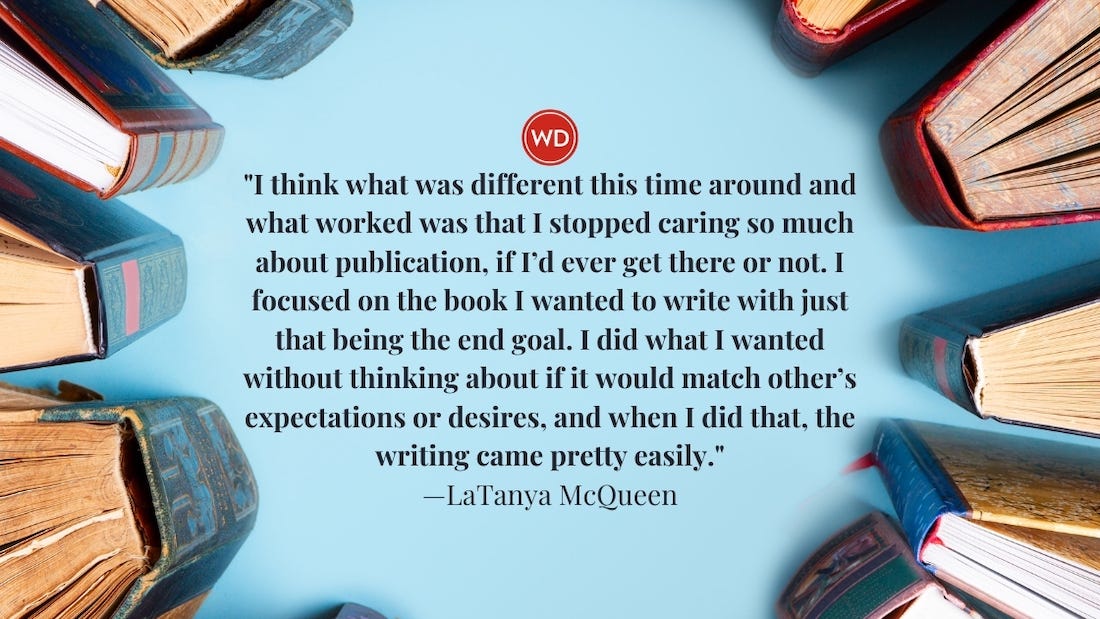Meet the Real Andre Dubus III
He did not set out to follow in his famous father’s footsteps, nor is he as dark and brooding as his own House of Sand and Fog. And those are just the first of many things that will surprise you about the bestseller.
Did they send the right guy?
Andre Dubus III writes serious, literary, heavy—often very heavy—stuff.
At his book signing, I watch as the jovial, immensely likable author high-fives a reader’s kid.
Andre Dubus III grew up bullied, and learned to knock people’s teeth out with a single punch. What many readers know of the House of Sand and Fog author’s life comes from his latest book, a memoir about his rough childhood around Boston following the departure of his famous writer father.
He chats up a priest, and then warmly demands that a reader give him a hug.
Andre Dubus III entered his teen years on a wave of booze, marijuana and vandalism. Later, he got by cleaning offices, worked as a carpenter, bartended, even did a stint as a bounty hunter.
At the start of our interview, he smiles and raises his pint of Guinness. “Here, brother,” he says.
“Cheers,” I say.
“To words!” he beams in his Boston accent.
He sips.
“Aw, that’s good, innit? And do you know it’s loaded with bioflavonoids, which are a natural cholesterol lowerer?”
Wait a second. Andre Dubus III: Who are you?
--
MEET THE REAL ANDRE DUBUS III
He didn't set out to follow in his famous father’s footsteps, nor is he as dark and brooding as his own House of Sand and Fog. And those are just the first of many things that will surprise you about the bestseller.
--
ANDRE DUBUS III DIDN’T HAVE ANY LITERARY ASPIRATIONS.
Sitting at a high-top table in a tavern, the 52-year-old even looks the part of a successful writer—sport coat, sharp collared shirt, gray-twinged, windswept hair. (A Boston Globe reporter described him as a literary cross between Kurt Russell and John Mellencamp.) But though many are quick to assume that the son of critically adored short-story writer Andre Dubus (and cousin of Pulitzer Prize–nominee James Lee Burke) followed a predetermined path, the truth is Dubus had no big publishing dreams.
“I never wanted to be a writer,” he says. “I am just still stunned that I’ve sold millions of books and make my living doing this.”
The younger Dubus was always more preoccupied with protecting himself and his family while his mother—finding herself divorced from an unfaithful and absent husband—struggled to pay the bills and raise Dubus and his three siblings. A small-statured kid, Dubus was the target of bullies in his Boston neighborhood (he also took a few hits for sprinkling his speech with too many adverbs), and eventually he reacted by turning to obsessively bodybuilding and boxing.
Still, he always loved language, and secretly relished writing assignments at school—though he’d never have admitted it on the street. And at 22, having been on a violent path likely to land him in jail or dead, Dubus experienced a catharsis. He was on his way to go box, and had a strange urge to sit down and write instead. So he did.
He felt alive. Awake. Like steam had been released from a valve.
“It was a semi-spiritual, life-saving moment where I found something that just made me feel like me, and that was not destructive,” he says. “I don’t want to paint the picture that I was some badass who discovered creativity—it was more it was always in me. I was always a sensitive, sweet kid, but I got brutalized and I became brutal. And frankly, I don’t think it was my natural makeup. I don’t think its anyone’s natural makeup to be a violent brawler.”
Now, at the tavern, the man who never wanted to be a writer (but who would become a finalist for the National Book Award and win a Guggenheim Fellowship, National Magazine Award, Pushcart Prize and an American Academy of Arts and Letters 2012 Literature Award) sips his beer and does what he does numerous times over when discussing his craft—he reaches into his encyclopedic vat of writing quotes and selects the perfect one.
“I like what Janet Burroway says,” he says. “ ‘Writing isn’t hard; not writing is hard.’ That’s only true if you’re a writer.”
ANDRE DUBUS III IS NO LONGER HAUNTED BY HIS FATHER’S LONG SHADOW.
Does your father help you? Does he help you get published?
When he was starting out, this is what Dubus heard time and again—about a man he hadn’t even grown up with. If anything, having a famous father may have meant that he had to work that much harder to prove himself.
He says his first book, the fiction collection The Cage Keeper and Other Stories, was submitted to 38 publishers over five years before it found a home. His second, the novel Bluesman, was turned down by more than 30. His third, House of Sand and Fog, collected 24 rejections over two years.
Dubus developed a growing sensitivity and even resentment about his name—and a distinct sympathy for the children of other prominent people with shared monikers.
“I go and buy Hank [Williams] Jr. just to buy Hank Jr.,” he laughs. “And now Hank III. And frankly, I like those guys a lot. … There are a lot worse hands to get dealt in life, but it can be a difficult hand.”
His breaking point came when a reviewer for a prominent publication wrote that his novel Bluesman was by Andrew Dubus III—author of … and went on to list his father’s books. The younger Dubus felt as if the book it’d taken him two and a half years to write—in a van by a construction site where he was working 10 hours a day—had been stolen from him.
“And then I realized, after swearing and screaming for an hour, I don’t really care. I don’t really care. It’s time to start practicing what I preach. I truly believe the art’s larger than the artist. Who cares about John Steinbeck? I care about the Joad family. So does it really matter who the reader thinks wrote this book? And that freed me at that moment. I let go of the world ever noticing, I let go of anything ever happening in a worldly way with my writing, and I frankly had no expectation in the first place. And once—it’s interesting on an energetic spiritual level—as soon as I let go of any of that”—he lowers his voice—“I had a No. 1 fu**ing bestseller.”
He laughs. “What the hell?”
That bestseller: 1999’s House of Sand and Fog, the story of the intertwined lives of a former Iranian army colonel and a former drug addict. It was anointed by Oprah Winfrey, and went on to be made into an Academy Award–nominated film. Dubus followed with the novel The Garden of Last Days and now his latest, the bestselling memoir Townie, telling the full story of the past we’ve touched upon here.
And what of his father? He’d been confined to a wheelchair after being struck by a car in 1986, and following the accident, the two Dubus writers finally fully connected, and grew close. Before the elder died (in 1999, right after the publication of House of Sand and Fog), he told his son he’d seen a financial statement of all his own books he’d sold throughout his life—and was depressed by how small the number was.
Thus, these days, when one of Dubus III’s new releases prompts a spike in his father’s sales—a testament to how big the younger author has really gotten—he’s glad on all counts. The name resentment of the past is gone.
“One of the accidental joys of my writing life has been that I’ve had some lovely, surprisingly good fortune with readers, and I’ve brought readers to my dad’s work,” he says. “I can’t tell you the joy that gives me. Because my father’s work was masterful.”
ANDRE DUBUS III IS THE HAPPIEST MAN WHO WRITES THE SADDEST BOOKS.
It may surprise you to learn that for a writer who exudes so much charisma and confidence, when Dubus finished House of Sand and Fog, the story had taken such a dark turn that he felt like apologizing for it.
“I felt about the way I feel about everything I write, which is a better writer would have done a better job with this book—but it’s the best I can do right now, and that’s all I could ask for.”
So why does such a delightful man—not entirely unlike a motivational speaker in the animated way he engages a crowd—go to such heavy depths in his work?
“I don’t know,” he says. “But you know, I think it’s important for a writer not to be too conscious about it. I think this is a descent into the dream world. I mean, the irony is House of Sand and Fog is probably the darkest book I’ve written, and when I wrote it, I was never happier.
“I do think that so much of what writers wrestle with is our demons and our fears, and the dream world is dark and it’s not always painful, but it’s mysterious.”
With such serious subject matter, he was all the more shocked when the novel broke out in the way it did. The first paperback print run was 30,000 copies. Six months later, 160,000 copies had sold. The publisher was going back for another 20,000 when Oprah’s people called, wanting to feature the book in her book club (an “out of body” experience). The print run was bumped to 900,000 copies. It sold another million.
Still, the man who used to get paid to clean toilets—“I tried to do that job as well as if I were operating on someone’s heart”—says he didn’t alter his work ethic.
“I’ve had a lot of glamour come my way in the last 10 years—you know, movie stars and mansions and red carpets and trips to Europe and crazy stuff I never would have imagined—and I look at them as if I’m the bartender in the corner of the room,” he says. “They’ve never gone into my psyche. I look at them with distance, and wonder.”
ANDRE DUBUS III IS BOTH ARTIST AND BUSINESSMAN.
It’s methodical: Every morning, Dubus wakes up and takes his kids to school (he lives in Massachusetts with his wife, who is a professional dancer, and two of his three children). He returns home. It’s empty of everyone except the dog. He takes a cup of black dark roast coffee down to the basement, where he’s built a 5-by-11 sound-proofed room. He sits at a desk in front of a blank wall, types the previous day’s longhand writing into the computer, then turns the machine off. He sharpens a pencil with a knife, reads three or four poems—for “the high bar of language that poets always give us prose writers”—and then stares at the page.
“I try to put myself in a state of openness and receptivity and not try to say anything and not think it, but dream it. And then I pick up where I left off.”
He writes for two to three hours, goes to the gym to clear his head (he still works out “like a demon”), and that’s it.
When it comes to creating a piece of writing, Dubus believes the story has to percolate in your mind—and that you shouldn’t write it too early.
“There’s a profound difference between making something up and imagining it,” he says. “Imagining it instead is falling into your psyche, your imagination, and finding something that’s there already that wants to come out—instead of you pushing it out into the world.”
He adds that just because something is salable, that doesn’t make it good. Which brings up the issue of craft versus business—something Dubus is passionate about. When an aspiring writer asks him a career question, he says he gets uncomfortable—he’s happy to help, but wants to know if the person has done the real work first: painstakingly crafted the words.
“I really think that if there’s any one enemy to human creativity, especially creative writing, its self-consciousness,” he says. “Do not think about what publisher likes this; do not think of even if readers like it. Just be honest.”
Dubus teaches writing at the University of Massachusetts Lowell, and his philosophy in leading a class is this: Let’s just try to find a way to do this as deeply as it can be done. Then, he says with a laugh, “we’ll talk about getting you a freaking agent. But we’re not talking about that first. It’ll pollute it! It’ll pollute it!”
That doesn’t mean he shuns the business side of being a writer, though—after all, he is on a book tour right now, and it’s undeniable that he’s good at it. He’ll shake your hand, ask your name, and call you by it when he takes your question in front of the audience.
Still, “I want my books to be read, I work hard on them, but I never bring the author into my writing room,” he says. “I just bring the writer in.”
He says the trick to detaching the two goes back to how he found his way to writing in the first place—how alive he feels when he does it, and how far away he feels when he doesn’t.
“Even a day writing badly for me is 10 times better than a day where I don’t write at all.”
Moreover, he points out, he owes $100,000 in tuition for his kids every year—“a first-world problem”—and you’d think he’d write something with the highest sales potential to offset that. But what’s he working on now? A collection of novellas.
Novellas?
“It’s a completely noncommercial book, but I don’t care,” he says. “I think I may be actually writing well about what’s going on. Maybe.
“And that’s all I try to do.”
*
At the book signing, I watch the once-violent man hug his readers. Listen to him crack wise. Watch him smile and talk about how he loves rapper 50 Cent.*
Did they send the right guy?
Yes, they did. A writer who never wanted to be one. A seemingly happy man who writes sad books. A craftsman who refuses to compromise but makes the bestseller lists anyway. A writer who’s nothing like the one you’d imagine in the cliché corridors of the mind.
Meeting Dubus reminds you that it’s not all supposed to make sense. Life is contradictory. It’s messy. It’s all about gray zones. And if you’re wondering how this writer broke out in the way he did as an artist, maybe that’s just it—that’s how he paints it. WD
Zachary Petit is the managing editor of Writer's Digest.
*Dubus once saw Curtis “50 Cent” Jackson in New York and got an autograph for his daughter. When I tell him Jackson has a new young adult book out about bullying (Playground), he lights up. “I’m gonna go buy it for my daughter. You kiddin’ me? I’m gonna go ask them if they have it. That is so cool.”
Zachary Petit is a freelance journalist and editor, and a lifelong literary and design nerd. He's also a former senior managing editor of Writer’s Digest magazine. Follow him on Twitter @ZacharyPetit.








